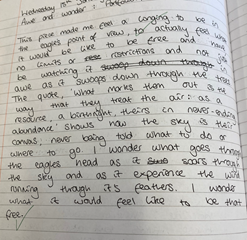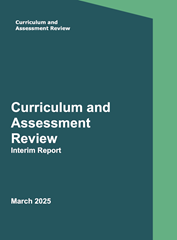Building on the momentum from Professor Katy Shaw’s article for emagazine Sept 2018, blogged in advance on EMC’s website, EMC’s Barbara Bleiman, Professor Bob Eaglestone (RHUL) and Professor Gail Marshall (University of Reading) combined forces to write a series of tweets giving all the reasons they could think of for studying English at university. Bob tweeted them as one long thread that could be retweeted and shared with colleagues, A Level students and others.
Given the troubling dip in recruitment both for A Level and for HE in the Humanities in general and for English in particular, we want to share these reasons for studying English with you. They provide the kind of rationale for the subject that you might want to offer to students, not just at degree Level but before that too, to provide up-to-date arguments for the subject and what it has to offer.
Here they are. Feel free to add ones of your own!
- It’s about creativity – not just in the texts you read but how you respond, think and change in relation to them. What does it mean to you?
- Read a rich range of wonderful novels, poems, plays and texts that can’t easily be categorised! (plus works of history, philosophy, theory and more...).
- We’re shaped by language, so studying its use and significance is both important and exciting.
- English isn't always English - texts in English come from across the globe and bear witness to the diverse cultures that produced them.
- English doesn't always start out in the UK: texts in translation help us to read across national borders and to think about communication between cultures.
- The medium is the message - whether it's a medieval manuscript, a hand-printed book, or an e-reader. Literature has always shaped and responded to technological change.
- Be taught by enthusiastic + committed experts who are reading, thinking, researching + writing too!
- Literature is a part of our living cultural ecosystem: it’s still growing, developing and changing.
- Employers LOVE English graduates: research shows companies value communication, collaboration, critical thinking, independence, adaptability. English teaches these. So become an effective researcher, great communicator and active, lifelong learner.
- The discipline of English is about dissensus as well as consensus. The disagreements are as fascinating and intellectually engaging as the agreements!
- What you read for pleasure is also part of what you study – it will fuel you as a reader and as a person for the rest of your life.
- Join the greatest, longest conversation of humanity.
- It’s sociable! English degrees rely on talking, arguing and communicating with others.
- Assessed in all kinds of different ways: creative work, reviews, presentations, coursework, discussions, essays, portfolios (traditional exams are rarely used in many degree courses.)
- There are many different strands and combinations to choose from – English Literature, English Language, Creative Writing, Linguistics, Cultural studies, Liberal Arts, Comparative Literature + English is a great combined or joint honours subject too!
- Often labelled as a ‘Humanities’ subject, some English degrees cross boundaries e.g. corpus analysis in stylistics.
- Other subjects may study ‘what’ you are: English is about ‘who’ you are.
- Learning from the past, in the present, for the future (a phrase coined by Professor Katy Shaw ).




